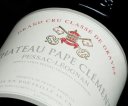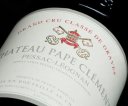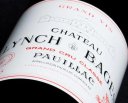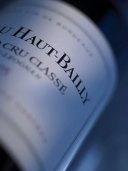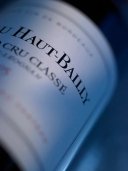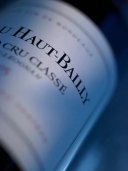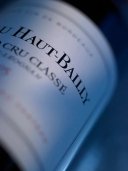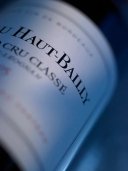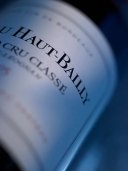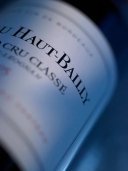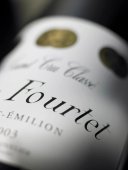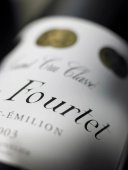Château Ducru-Beaucaillou
Chateau Ducru Beaucaillou 2015
$400 eachPrice consistently lowChateau Ducru Beaucaillou 2016
$520 eachTypical priceChateau Ducru Beaucaillou 2018
$550 eachTypical priceChâteau Ducru Beaucaillou 1985
91 points$727 eachPrice consistently high
Château Pape Clément Rouge
Château Pape Clément Rouge 2008
$400 eachPrice consistently high
Château Pape Clément Pape Clément Rouge
Château Pape Clément Pape Clément Rouge 2017
96 points$233 eachin cases of 6 for $1,398Price consistently lowChâteau Pape Clément Pape Clément Rouge 2016
$280 eachin cases of 6 for $1,680Typical priceChâteau Pape Clément Pape Clément Rouge 2016 9000mL 2016
98 points$4,240 eachPrice consistently highChâteau Pape Clément Pape Clément Rouge 2016 6000mL 2016
98 points$2,855 eachPrice consistently highChâteau Pape Clément Pape Clément Rouge 2016 15000mL 2016
98 points$7,174 eachPrice consistently high
Château Pavie Arômes de Pavie
Château Pavie Arômes de Pavie 2018
93 points$273 eachin cases of 6 for $1,638Price consistently low
Montrose
Montrose 2021 1500ml
$778 eachTypical priceMontrose 2021 3000ml
$1,585 eachTypical priceMontrose 2014
$407 eachTypical priceMontrose 2021
$429 eachTypical priceMontrose 2019 6000ml 2019
$4,404 eachPrice consistently highMontrose 2020
$543 eachPrice consistently highMontrose 2018
$578 eachPrice consistently high
Lynch Bages
Lynch Bages 2021 1500ml
$644 eachPrice consistently lowLynch Bages 2021 6000ml
$2,520 eachPrice consistently lowLynch Bages 2017
$340 eachTypical priceLynch Bages 2021
96 points$340 eachTypical priceLynch Bages 2020 3000mL 2020
$1,389 eachTypical priceLynch Bages 2020 6000mL 2020
$2,775 eachTypical priceLynch Bages 2011
$396 eachTypical priceLynch Bages 2005 1500ml
$1,131 eachPrice consistently highLynch Bages 2005 1500ml
96 points$1,131 eachPrice consistently highLynch Bages 2010
$595 eachPrice consistently highLynch Bages 2000 3000mL 2000
$4,184 eachin any 12Price consistently high
Haut Bailly
Haut Bailly 2007
92 points$251 eachin cases of 6 for $1,506Price consistently lowHaut Bailly 2017
96 points$258 eachin cases of 6 for $1,548Price consistently lowHaut Bailly 2014
$258 eachin cases of 12 for $3,096Price consistently lowHaut Bailly 2011
95 points$284 eachPrice consistently lowHaut Bailly 2019
$347 eachTypical priceHaut Bailly 2021 1500ml
97 points$686 eachTypical priceHaut Bailly 2021 3000ml
$1,407 eachTypical priceHaut Bailly 2020
$370 eachPrice consistently highHaut Bailly 2008
$366 eachPrice consistently highHaut Bailly 2018
$362 eachPrice consistently highHaut Bailly 2021
$362 eachPrice consistently highHaut Bailly 2003
$370 eachPrice consistently highHaut Bailly 2010 5000ml 2010
98 points$3,914 eachPrice consistently high
Duhart-Milon
Duhart Milon 2018
$247 eachin cases of 6 for $1,482Typical priceDuhart Milon 2020
95 points$247 eachin cases of 6 for $1,482Typical priceDuhart Milon 2016
$273 eachin cases of 6 for $1,638Price consistently highDuhart Milon 2002
90 points$284 eachPrice consistently highDuhart Milon 2015
$284 eachPrice consistently highDuhart Milon 2004
$284 eachPrice consistently high
Clos Fourtet
Clos Fourtet 2021
95 points$295 eachTypical priceClos Fourtet 2020
$325 eachPrice consistently high
Langoa Barton
Langoa Barton 2021
$120 eachin cases of 6 for $720Price consistently lowLangoa Barton 2020
$139 eachin cases of 6 for $834Price consistently lowLangoa Barton 2015
$150 eachin cases of 6 for $900Typical priceLangoa Barton 2009
95 points$265 eachin cases of 6 for $1,590Price consistently high




